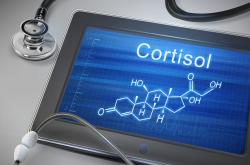How Your Depression Could Be Causing Your Fatigue
When patients feel fatigued, they often look at everything but their emotions and state of mind. That’s unfortunate, because often times the real source of their exhaustion can be something as simple as the medical condition known as depression.
If you’ve noticed that your fatigue level seems to align perfectly with feelings of depression, you’re not alone. The two often go hand in hand. In fact, they are so commonly experienced in unison that many people simply attribute their depression to their lack of energy. After all, who wouldn’t be depressed by being so tired that even the simplest daily tasks seem like major obstacles?
The reality is, however, that it may be depression that is causing your fatigue. If so, and if you’re busy focusing on your fatigue without examining or dealing with the depressed mood issues you face, then chances are that your recovery efforts will be blunted. To avoid that and ensure that your battle against fatigue is being fought on the right battlefield, it is important to understand and recognize when depression is the cause rather than the result of your fatigue.
What is Depression?
Put simply, depression is a type of mood disorder that results in continuing feelings of sadness, hopelessness, and lessened interest in life. While many view it as a sign of mental or emotional weakness, it is actually classified as a serious medical condition that can affect not only your feelings, but your cognitive abilities and behaviors. And, yes, it can affect how you feel physically as well.
What Causes Depression?
Though science has no clear answer as to the exact causes of depression, there are some things that we do know:
Medical scans of people suffering from depression do show clear biological differences reflecting actual changes in their brains.
The condition seems to occur more often in people with biological relatives who also suffer from depressions – indication that heredity may play a role.
Hormonal imbalances have been detected in patients with depression, and some have been traced to problems related to menopause or thyroid difficulties, as well as other medical conditions.
Trauma is often a factor for these patients. This can include traumatic physical, mental, and emotional events.
The chemicals in the brain are often found to be out of balance in depressed individuals.
Recognizing the Symptoms of Depression
There are ten common symptoms that often indicate depression of one magnitude or another. They include:
- Ongoing sadness
- Loss of libido
- Anxiety
- Cognitive disruption
- Suicidal thoughts
- Loss of appetite
- Mood swings and increased irritability.
- Fatigue that is often accompanied by unexplained aches and pains
- Memory Loss
- Self-loathing
How Does Depression Cause Fatigue?
Depression can induce or add to fatigue in a number of ways. For one thing, it often leads to sleeplessness, as patients struggle to calm their minds at night, or frequently awaken with feelings of anxiety. Many people fail to see that as a sign of potential depression and instead attribute it to being overworked or otherwise stressed. Without normal sleeping patterns, the body is unable to recharge its energy and fatigue soon follows.
Even more than that, though, the other effects of depression can wear on a patient throughout each day. Those all create stress on the body’s systems and the natural stress response results in increased levels of cortisol. As the adrenals and the brain work overtime to meet these challenges, the higher hormone levels result in the very type of adrenal dysregulation that can further disrupt the natural circadian sleep-wake cycle.
In time, this cycle of depression and fatigue becomes seemingly unbreakable, as patients become ever more exhausted even as their mood continues to grow darker. Left untreated, this cycle can result in a complete collapse into exhaustion, as well as mental or emotional breakdown.
Strategies for Defeating Depression
The good news is that there is effective treatment that can help to alleviate depression and diminish its effects. Before you can really focus in on fixing the problem, however, it is important to seek an accurate diagnosis of depression. Once that has been confirmed, you and your physician can design a treatment plan that will use some combination of medication, counseling, diet, and exercise to help get you back on track.
The Diagnosis
When you consult with your physician, the process will typically begin with a physical examination. Even though depression is not always related to physical issues, it can be. Your doctor will want to identify any possible physical problems before developing a treatment plan. That physical exam can include various lab tests to examine blood count, hormone levels, and thyroid activity.
The second part of the diagnosis process usually involves a psychological evaluation. This can be performed by your physician or by a competent mental health expert, and will examine your feelings, behavioral patterns, and thoughts – as well as the symptoms you’re presenting at the time.
Medication
Once a diagnosis of depression is made, your physician can determine whether medication is appropriate. There are a number of different antidepressant medications on the market today, including serotonin inhibitors and others that inhibit norepinephrine and dopamine. There are others as well, but many come with unwanted side effects.
Counseling
Counseling can take many forms. These psychotherapy techniques are typically employed to help you talk through problems in different ways. Depending on the techniques used, you can use these therapies to gain new insight into how you are responding to certain events, learn new coping skills to deal with tragedies, stress, and other problems, and gain greater tolerance for yourself and others.
In more severe cases of depression – and especially those in which suicide is a real concern, your doctor may suggest residential mental health services at a hospital or other facility. These facilities are sometimes better equipped to deal with your concerns, and can offer the sort of round-the-clock help many depressed patients need.
Diet and Exercise
Diet, exercise, and other lifestyle improvements can help you to feel better from a physical standpoint, and often prove invaluable for elevating your mood as well. Focus on eating more whole foods, avoiding sugar and other harmful substances, and getting plenty of exercise and rest. Those changes can help to increase your energy, which can aid you in your battle against your depression. You also need to avoid drugs and alcohol, since they tend to only make your current mood more intense. That’s the last thing you need when you’re depressed.
Finally, recognize that depression is not a permanent affliction. Chemical imbalances can be corrected with medication, and most other causes of depression have solutions once the source of the problem is identified. The key thing is to move early to obtain a proper diagnosis of your condition so that your depression – and your fatigue – can receive the attention you need.
You might also be interested in:
- Depression (major depressive disorder). http://www.mayoclinic.org/diseases-conditions/depression/basics/symptoms/con-20032977
- How Depression Affects Your Body. http://www.webmd.com/depression/how-depression-affects-your-body
- Depression and Fatigue: A Vicious Cycle. http://www.healthline.com/health/depression/fatigue
- 5 Tips for Dealing with the Overwhelming Fatigue of Depression. http://psychcentral.com/blog/archives/2015/04/17/5-tips-for-dealing-with-the-overwhelming-fatigue-of-depression/



















Leave a comment